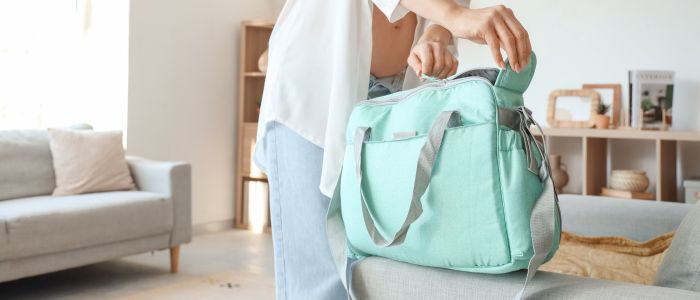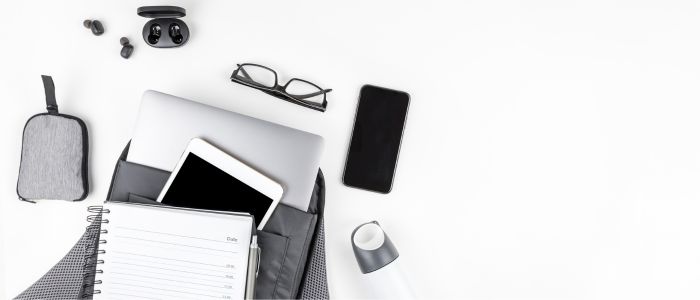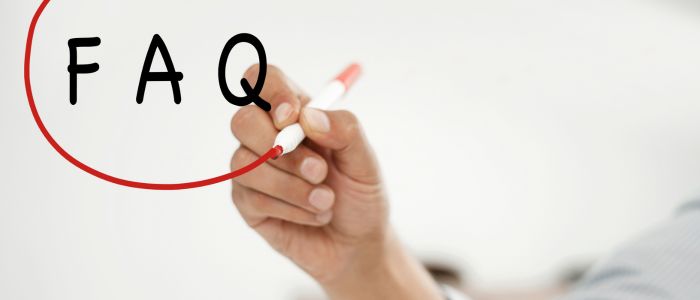
- Your Essential Packing Guide for Plastic Surgery
- Take our Plastic Surgery Quiz to find out if you'd be a good candidate for cosmetic surgery.
- Before You Start Packing
- Consult with Your Surgeon or the Team
- Check Hospital Policies
- Consider the Length of Your Stay
- Clothing Essentials for Your Hospital Bag
- Comfortable, Loose-fitting Clothes
- Supportive Undergarments (if applicable)
- Slip-on Shoes or Slippers
- Personal Care Items
- Toiletries
- Skincare Products
- Lip Balm and Hand Cream
- Comfort and Recovery Aids
- Pillows or Cushions for Support
- Eye Mask and Earplugs for Better Sleep
- Books, Magazines, or E-reader
- Technology and Entertainment for Your Hospital Bag
- Mobile Phone and Charger
- Tablet or Laptop (if permitted)
- Headphones for Private Listening
- Important Documents and Information
- Insurance Cards and Identification
- List of Current Medications
- Emergency Contact Information
- Post-Surgery Necessities
- Prescribed Medications
- Compression Garments (if required)
- Ice Packs or Heating Pads (as recommended)
- What to Leave at Home
- Valuable Jewellery
- Large Amounts of Cash
- Unnecessary Gadgets
- FAQs about Packing for Hospital
- Further Reading about Surgery with Consultant Plastic Surgeon Anca Breahna
Your Essential Packing Guide for Plastic Surgery
If you’re reading this, chances are you’re considering or have already decided to undergo plastic surgery. As you start this process, one crucial aspect often overlooked is how to prepare for your hospital stay—more specifically, what to pack in your hospital bag before plastic surgery.
At the practice of Consultant Plastic Surgeon Anca Breahna, we believe that your comfort and peace of mind are just as important as the surgical procedure itself. That’s why we’ve put together this guide to help you pack smartly for your hospital stay. Anca and her team are committed to providing exceptional care throughout your surgical journey.
Take our Plastic Surgery Quiz to find out if you’d be a good candidate for cosmetic surgery.
Before You Start Packing
Before you start tossing items into your suitcase, there are a few important steps to take. These will ensure you’re not only packing the right things but also adhering to hospital policies and Anca’s recommendations.
Consult with Your Surgeon or the Team
First things first, have a chat with Anca or her team about what to expect during your hospital stay. Every procedure is unique, and your packing needs may vary depending on the type of surgery you’re having. For instance, if you’re having facial surgery, you might need different items compared to someone having body contouring procedures.
Don’t be shy about asking questions. Are there specific items they recommend bringing? Are there things you should definitely leave at home? The more information you have, the better prepared you’ll be.
Check Hospital Policies
Hospitals often have their own rules about what patients can and cannot bring. Some may provide certain items, while others expect you to bring your own. It’s worth checking if there are any restrictions on electronic devices or specific toiletries. Knowing these details in advance can save you from any last-minute surprises or the disappointment of having to send items back home with your loved ones.
Consider the Length of Your Stay
The duration of your hospital stay will influence what and how much you pack. Are you in for day surgery, or will you be staying overnight? Perhaps you’re looking at a few days in the hospital. Pack accordingly, but remember, you don’t need to bring your entire wardrobe! A good rule of thumb is to pack for one extra day, just in case.
Clothing Essentials for Your Hospital Bag
Now that you’ve done your homework, let’s talk about what to wear. The important thing here is comfort, practicality, and ease of wear.
Comfortable, Loose-fitting Clothes
After surgery, the last thing you want is to squeeze into tight jeans or a restrictive top. Opt for loose, soft clothing that’s easy to put on and take off. Think along the lines of:
- Buttoned or zip-up tops: These are easier to manage than pull-over styles, especially if you have limited mobility after surgery.
- Elastic waist trousers or joggers: They’re comfortable and won’t put pressure on your surgical sites.
- Soft, breathable fabrics: Cotton is your friend here. It’s gentle on your skin and helps regulate body temperature.
Keep in mind that you might be a bit swollen after surgery, so clothes that are a size larger than your usual might be more comfortable.
Supportive Undergarments (if applicable)
Depending on your procedure, you might need specific undergarments. For breast surgeries, a soft, supportive bra without underwire is often recommended. For body contouring procedures, you might need compression garments. Anca or her team will advise you on what’s best for your specific case.
Slip-on Shoes or Slippers
Bending down to tie shoelaces might be challenging post-surgery, so opt for slip-on shoes or slippers. Make sure they have non-slip soles for safety. Cosy slippers can make your hospital stay feel a bit more like home, but remember to bring a pair that’s easy to clean – hospital floors can be surprisingly dirty!
Personal Care Items
While hospitals provide basic necessities, bringing your own personal care items can make your stay much more comfortable. Plus, using familiar products can be oddly comforting when you’re away from home.
Toiletries
Pack a small toiletry bag with the essentials:
- Toothbrush and toothpaste
- Deodorant (unscented is best to avoid irritating your surgical site)
- Hairbrush or comb
- Dry shampoo (a lifesaver if you can’t wash your hair immediately after surgery)
- Face wipes or gentle cleanser
- Moisturiser (if approved by your surgeon)
You can pack travel-sized items to save space. If you’re staying for more than a couple of days, you might want to include some disposable washcloths for freshening up between showers.
Skincare Products
When it comes to skincare after surgery, less is often more. Stick to gentle, fragrance-free products that won’t irritate your skin or surgical sites. Always check with Anca about which products are safe to use post-surgery. You might need to temporarily discontinue certain active ingredients like retinols or alpha-hydroxy acids.
Lip Balm and Hand Cream
Hospital air can be notoriously dry, so don’t forget to pack a good lip balm and hand cream. Your skin and lips will thank you! Opt for unflavoured, unscented varieties to minimise any potential irritation.
Comfort and Recovery Aids
These items can make a world of difference in how restful and pleasant your hospital stay is:
Pillows or Cushions for Support
While hospitals provide pillows, bringing your own can offer extra comfort and support. A small, firm pillow can be especially useful for supporting your neck or knees, depending on your surgery. If you’re having breast surgery, a ‘U-shaped’ pillow can provide comfortable support while you sleep.
For those having facial surgery, consider bringing a wedge pillow to keep your head elevated. Just remember to use pillowcases in a colour other than white, so they don’t get mixed up with hospital linens!
Eye Mask and Earplugs for Better Sleep
Hospitals can be bright and noisy, even at night. An eye mask can block out light, helping you maintain your sleep cycle. Good quality earplugs or noise-cancelling earbuds can muffle the beeps and whirrs of hospital equipment, not to mention the chatter of staff and other patients. These simple items can improve your sleep quality, which is important for healing.
Books, Magazines, or E-reader
Recovery time can feel long, especially if you’re used to being active. Bring along some light reading material to keep your mind occupied. If you’re a book lover, an e-reader can be a godsend, allowing you to carry an entire library without the bulk. Magazines are great too – they’re light, easy to hold, and you can easily put them down if you feel tired.
Consider bringing a mix of familiar favourites and new material. Re-reading a beloved book can be comforting, while a new story can help pass the time more quickly.
Technology and Entertainment for Your Hospital Bag
In our connected world, staying in touch with loved ones and keeping yourself entertained is easier than ever. Here’s what to consider bringing:
Mobile Phone and Charger
Your mobile phone is likely your lifeline to the outside world. Don’t forget to pack your charger! A longer charging cable can be handy, as hospital outlets aren’t always conveniently located. If you have one, a portable battery pack can be a useful backup.
Make sure to download any apps you might need before your stay. Hospital Wi-Fi can be patchy, so having everything ready to go is a smart move.
Tablet or Laptop (if permitted)
If the hospital allows it, a tablet or small laptop can be a great source of entertainment. You can watch films, catch up on your favourite series, or even do some light work if you’re feeling up to it. Just remember, rest is important for recovery, so don’t overdo it!
Headphones for Private Listening
A good pair of headphones is essential. They allow you to enjoy your entertainment without disturbing others, and they’re great for blocking out hospital noise when you need some quiet time. Wireless headphones are ideal, as they eliminate the hassle of tangled cords.
Important Documents and Information
Amidst all the focus on comfort items, don’t forget the practical necessities. Having your important documents and information readily available can save you (and the hospital staff) a lot of hassle.
Insurance Cards and Identification
Make sure to bring your health insurance card and a form of photo identification. It’s a good idea to have copies of these documents as well, just in case. If you have any additional insurance policies that might be relevant (like critical illness cover), bring that information too.
List of Current Medications
Prepare a complete list of all medications you’re currently taking, including dosages and frequencies. Don’t forget to include any supplements or herbal remedies – these can sometimes interact with medications, so it’s crucial that your medical team knows about them.
It’s also helpful to note any allergies or adverse reactions you’ve had to medications in the past. The more information you can provide, the better equipped your care team will be to look after you.
Emergency Contact Information
While the hospital will have your next of kin on file, it’s always good to have a list of emergency contacts with you. Include names, relationships, phone numbers, and addresses. If there are specific individuals you want (or don’t want) to be given information about your condition, make sure this is clearly communicated to the hospital staff.
Post-Surgery Necessities
Planning ahead for your immediate post-surgery needs can make your recovery smoother and more comfortable.
Prescribed Medications
If Anca has prescribed any medications for you to take after surgery, make sure you have these ready. This might include pain relievers, antibiotics, or other specific medications. If you haven’t filled these prescriptions yet, check if the hospital pharmacy can do this for you before you’re discharged.
Compression Garments (if required)
For many plastic surgery procedures, especially body contouring surgeries, you may need to wear compression garments. These help reduce swelling and support your new contours as you heal. Anca will advise you on what type of compression garment you need and when to start wearing it. In some cases you may need to purchase them in advance. Make sure you get the correct size and style as recommended by your plastic surgeon.
Ice Packs or Heating Pads (as recommended)
Depending on your procedure, you might need ice packs to reduce swelling or heating pads to promote circulation. Check with Anca about what’s appropriate for your recovery. If you’re bringing these items from home, make sure they’re clean and in good condition. Some patients find gel packs that can be used for both hot and cold therapy particularly useful.
What to Leave at Home
As important as it is to know what to pack, it’s equally crucial to know what to leave behind. Here are a few items that are best left at home:
Valuable Jewellery
The hospital is not the place for your prised jewellery collection. Not only is there a risk of loss or theft, but you’ll likely need to remove all jewellery before surgery anyway. If you wear a wedding ring or other sentimental piece that you never take off, ask the surgical team about their policy. In some cases, they may be able to tape over the item during surgery.
Large Amounts of Cash
There’s really no need to bring large sums of cash to the hospital. Most hospital cafes and shops accept card payments these days. If you want to have some cash on hand for small purchases, a small amount should suffice. Keep in mind that the less valuable items you bring, the less you have to worry about.
Unnecessary Gadgets
While some technology can be helpful during your stay, don’t go overboard. Multiple devices can be cumbersome and increase the risk of loss or damage. Stick to the essentials that will genuinely enhance your comfort and keep you connected.
FAQs about Packing for Hospital
Can I bring my own pillow or blanket from home?
Most hospitals provide bedding, but bringing your own pillow or a lightweight throw can add comfort and a touch of home. Ensure they’re freshly laundered before packing. Some patients find that their own pillow helps them sleep better in an unfamiliar environment. Just be sure to use a distinctively coloured pillowcase so it doesn’t get mixed up with hospital linens.
Are there any restrictions on the types of food or drinks I can bring?
This varies by hospital and procedure. Generally, you shouldn’t bring any food or drinks for consumption immediately before or after surgery without clearing it with your surgical team first. But for longer stays, some hospitals allow patients to bring sealed, non-perishable snacks. Always check with the hospital’s policy and your plastic surgeon’s recommendations. Remember, you might be on a special diet post-surgery.
Should I bring my own medications, including over-the-counter ones?
It’s best to bring all your current medications in their original packaging, including over-the-counter drugs and supplements. Make sure to inform your surgical team about all medications you’ve brought. The hospital will likely provide and administer your medications during your stay, but having your own supply ensures continuity of care, especially for medications not stocked by the hospital pharmacy.
Is it okay to bring scented products like perfume or strongly scented lotions?
It’s best to avoid bringing strongly scented products. Many hospitals have fragrance-free policies to accommodate patients and staff with sensitivities. Additionally, strong scents can sometimes cause nausea after anaesthesia. Stick to unscented or lightly scented products for your hospital stay.
What about makeup and nail polish? Should I remove these before coming to the hospital?
It’s generally recommended to arrive at the hospital without makeup, nail polish, or artificial nails. Makeup can interfere with skin preparation for surgery, and nail polish or artificial nails can obstruct the pulse oximeter, a device used to monitor your oxygen levels during and after surgery. If you’re unsure, ask your surgical team for specific instructions.
Medical References
- How to Pack for a Comfortable Hospital Stay – https://www.verywellhealth.com/what-to-pack-for-the-hospital-3157006
- Preparing For Surgery – What To Pack – https://www.mcht.nhs.uk/our-services/colorectal/eras-surgical-school/preparing-surgery
- What to pack for hospital – Heart Matters magazine – https://www.bhf.org.uk/informationsupport/heart-matters-magazine/wellbeing/prepare-for-a-hospital-stay/what-to-pack-for-a-hospital-stay
- What To Bring With You For Your Surgery – https://www.uchicagomedicine.org/patients-visitors/patient-information/preparing-for-your-hospital-stay/preparing-for-your-procedure-or-surgery/what-to-and-not-to-bring
- Before surgery – – – Having an operation … – https://www.nhs.uk/conditions/having-surgery/preparation/
Further Reading about Surgery with Consultant Plastic Surgeon Anca Breahna
- Read more about Preparing for Breast Augmentation: A Checklist
- Read more about Risks and Complications of Plastic Surgery
- Read more about Recovery Tips and Instructions
- Read more about Anti-Inflammatory Diet before Plastic Surgery
- Read more about Preparing for Breast Implant Removal Surgery



 Ms Anca Breahna, PhD, MSc, FEBOPRAS, FRCS (Plast) is a highly regarded Consultant Plastic Surgeon specialising in the field of Aesthetic and Reconstructive Plastic Surgery. Anca performs a range of
Ms Anca Breahna, PhD, MSc, FEBOPRAS, FRCS (Plast) is a highly regarded Consultant Plastic Surgeon specialising in the field of Aesthetic and Reconstructive Plastic Surgery. Anca performs a range of 